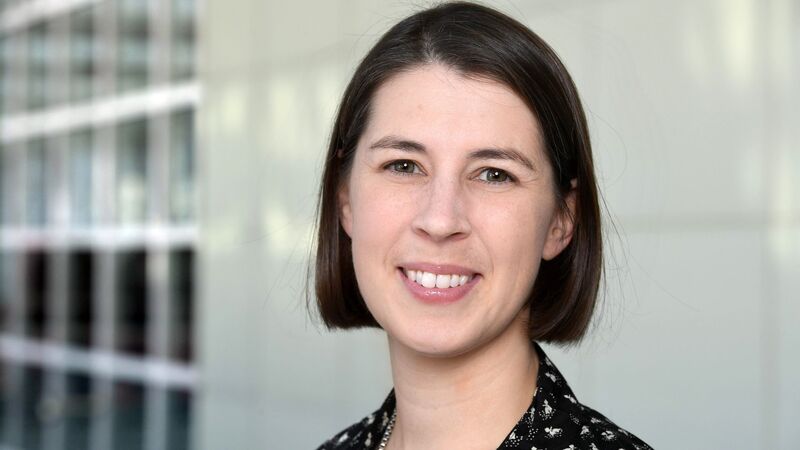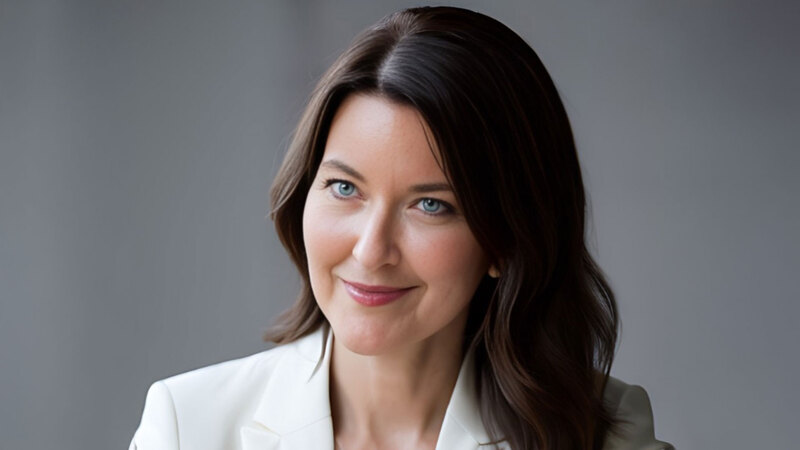You are viewing your 1 free article this month. Login to read more articles.
Springer Nature surges in the Global Publishing Ranking 2017
Springer Nature has cracked the top 10 of the world's biggest publishers for the first time, while Pearson - despite its recent travails - has comfortably retained its number one spot for a ninth year in a row.
This year's Global Ranking of the Publishing Industry, the annual Livres Hebdo/Bookseller list with research compiled by Rüdiger Wischenbart Content and Consulting, shows that Springer Nature had revenues of €1.63bn in its full year results for 2016. The company created by the merger between Springer Science + Business and the Holtzbrinck-owned Macmillan Science and Education division was formally completed in May 2015. Springer had sales of €949m in 2014, its last full year pre-merger. Holtzbrinck holds the majority stake in Springer Nature (53%, worth €863m in 2016), while it also had revenues of €1.16bn in its 15th-placed Holtzbrinck Publishing Group, which is driven by its Macmillan Publishers trade division.
However, Springer Nature benefits partially because of a change in focus by the Chinese government.
In 2013, the ranking began to include top Chinese publishers after the firms agreed to share their financial data. Alas, China's government has changed tack and required its Top 30 Cultural Enterprises (a group of companies from all sectors of the arts, including publishing) to adhere to a new criteria focusing on both the social and economic benefits they bring, with far more consideration given to the former. So, the government discouraged publishers from getting involved in our ranking this year as it is based on economic criteria only.
The upshot of this is that the Chinese groups that were featured last year have not shared their financials, all of whom in 2015 had revenues exceeding the equivalent of €1bn. While we cannot know the vicissitudes of the performance of individual companies, China's books market improved about 10% in 2016 and presumably most, if not all, of this gang of five had a similar upturn in fortunes. If we speculate on where the Chinese conglomerates would rank this year, China South Publishing and Media Group (€2.58bn in 2015) and Phoenix Publishing and Media (2015: €2.52bn) would undoubtedly be in the top 10, both just ahead of Hachette; China Publishing Group (2015: €1.28bn) and Zhejiang Publishing United (2015: €1.24bn) would be in the top 20, around Houghton Mifflin Harcourt's level; while China Education Holdings (2015: €1.06bn) would hit the top 25.
Yet, we are not just hindered by Chinese state censorship. Disney and Italian comics giant Panini would surely be in the Top 50—Disney perhaps in the top five—but owing to how both companies report, meaningful data about their publishing activities cannot be determined. Disney, for example, has a vast books empire: Disney Publishing Worldwide is undoubtedly the globe's biggest children's publisher, plus "the Mouse" owns Marvel, the "Star Wars" franchise (after purchasing Lucasfilm in 2012) and a number of other entertainment properties which generate books income. Yet Disney does not strip out its publishing revenue, instead lumping it into its Consumer Products and Interactive Media division, which also includes games and merchandise.
'Mann up
The exclusion of the Chinese companies has essentially wiped €10bn off the board: the top 50 publishers generated revenue of €53.5bn against €63.7bn in last year's ranking. But comparing like-for-like, that €53.5bn represents a marginal rise of 0.7% for the top 50. Once again, the power is concentrated at the top. The 10 biggest groups earned €30.2bn, or 56% of the Top 50's revenue, a share that has been consistent, with slight variations, since we started the list (the highest share was 58% in 2009).
Pearson's consistency has endured, too; the second-placed publishers, which has been either the RELX Group (formerly Reed Elsevier) or ThomsonReuters, have not really been within touching distance during Pearson's nine-year reign at the top. We should note that this chart is based on revenue, not profit, and Pearson has faltered on that side recently in the midst of testing times—it had its biggest-ever pre-tax loss of £2.6bn in 2016 and has gone through waves of redundancies with more expected (The chart is also in Euros, as that is the currency of a plurality of the groups, which owing to fluctuations post-Brexit is not beneficial to firms like Pearson which report financials in GBP).
There is technically another "new" entry in the top 10: Bertelsmann. Since its merger in 2013, Penguin Random House had been the German media conglomerate's sole publishing body. But in its 2016 full-year report, Bertelsmann split out PRH and a newly created education division, so we have switched to the overall group name. PRH does account for €3.36bn of Bertelsmann's €3.5bn publishing sales (or 96%) and it is by far the largest trade group in the world, €1.1bn ahead of nearest competitor Hachette.
Another newbie to this ranking is, like Springer Nature, the result of blockbuster board room moves. Somos Educação's (ranked 32nd) was created after São Paulo-based Tarpon Investments acquired Abril Educação in 2014, then engineered a somewhat surprising buyout of rivals Saraiva Educação in 2015. Most observers had predicted Saraiva would sell its retailing side (it is Brazil's biggest bookseller) and hold on to its more profitable publishing operations—indeed, Amazon was the rumoured suitor for the Saraiva chain. Another Brazilian education specialist, Editora FTD, makes its bow on the ranking in 49th place due to organic sales growth—particularly in textbook sales to the government—and that the exchange rate of the Brazilian real has recovered after suffering greatly in the early part of this decade.
Rue, Britannia
Pearson and RELX head up the five companies on the ranking headquartered in the UK, with Informa (18th place), Oxford University Press (20th) and Cambridge University Press (36th) rounding out the quintet.
All five companies report in GBP which as mentioned earlier is unfavourable in this chart as sterling has tanked against the Euro, depreciating by 14% at the end of 2016 compared to 2015 (the ranking is based on the currency rates on 31st December each year). In Euros the UK groups collectively earned just over €12bn in 2016, a drop of 9% year on year; sterling gives a rosier picture, up 2.5% to £10.3bn.
Second-placed RELX has narrowed the gap between it and Pearson in GBP to £580m, the closest it has ever been to its competitor. And RELX's bottom line certainly looks better—operating profit was up 5.7% to £1.1bn. Incidentally, the ranking is based on publishing-related activities only, which can be problematic. Most of the Japanese firms, for example, have bookselling and gaming operations which are difficult to strip out. In RELX's case, the Exhibitions side (which owns the London Book Fair) and its Risk & Business Analytics arm are excluded. Reed Elsevier Science Technical and Medical had a solid 2016, with the division's sales up 12% to £2.3bn, although RELX said that due to currency fluctuations, underlying growth was a far slimmer 2%. Yet, if it was a stand-alone firm the STM division would be in sixth place on this list.
In GBP, Informa's sales rose 7.7% to £784m, led by a jump of 9.6% to £490.4 for the Academic Publishing arm in retiring c.e.o. Roger Horton's last full year in charge. Meanwhile, there was a flat year for both OUP and CUP. Bloomsbury, incidentally, is just knocking on the door of this list. Its 2016 full year revenues were £127.3m, or €144.3m, just a shade off 50th-placed Shinchosha Publishing's €148m. In fact, Bloomsbury's fiscal year ends in February so we already know its 2017 results (£142m). Provided that sterling does not completely fall through the floor, the original Harry Potter publisher has an even better chance of making next year's ranking.
| LY | Publisher | Parent | Parent Home Country | 2015 (m) | 2016 (m) | Rev % Diff | |
|---|---|---|---|---|---|---|---|
| 1 | 1 | Pearson | Pearson PLC | UK | €6,072 | €5,312 | -12.5% |
| 2 | 3 | RELX Group | Reed Elsevier PLC & NV | UK/NL/US | €4,774 | €4,600 | -3.6% |
| 3 | 2 | ThomsonReuters | Woodbridge Company Ltd | Canada | €4,824 | €4,593 | -4.8% |
| 4 | N/A | Bertelsmann | Bertelsmann AG | Germany | €3,827 | €3,503 | -8.5% |
| 5 | 4 | Wolters Kluwer | Wolters Kluwer | NL | €3,143 | €3,206 | 2.0% |
| 6 | 8 | Hachette Livre | Lagardère | France | €2,206 | €2,264 | 2.6% |
| 7 | 10 | Grupo Planeta | Grupo Planeta | Spain | €1,658 | €1,790 | 8.0% |
| 8 | 9 | McGraw-Hill | Apollo Global Management LLC | US | €1,681 | €1,674 | -0.4% |
| 9 | 11 | John Wiley | John Wiley | US | €1,545 | €1,646 | 6.5% |
| 10 | 15 | Springer Nature | Springer Nature | Germany | €1,471 | €1,625 | 10.5% |
| 11 | 14 | Scholastic | Scholastic | US | €1,494 | €1,594 | 6.7% |
| 12 | 12 | HarperCollins | News Corp | US | €1,527 | €1,569 | 2.8% |
| 13 | 13 | Cengage Learning | Apax and Omers Capital Partners | US/Canada | €1,496 | €1,554 | 3.9% |
| 14 | 16 | Houghton Mifflin Harcourt | Houghton Mifflin Harcourt | US/Cayman Islands | €1,308 | €1,297 | -0.8% |
| 15 | 19 | Holtzbrinck Publishing Group | Verlagsgruppe Georg von Holtzbrinck | Germany | €1,128 | €1,162 | 3.0% |
| 16 | 23 | Shueisha | Hitotsubashi Group | Japan | €928 | € 1,008 | 8.6% |
| 17 | 25 | Kodansha | Kodansha Ltd | Japan | €888 | €961 | 8.2% |
| 18 | 22 | Informa | Informa Plc | UK | €984 | €910 | -7.5% |
| 19 | 24 | Kadokawa Publishing | Kadokawa Holdings Inc. | Japan | €925 | €908 | -1.8% |
| 20 | 21 | Oxford University Press | Oxford University | UK | €1,035 | €888 | -14.2% |
| 21 | 27 | Bonnier | The Bonnier Group | Sweden | €760 | €803 | 5.7% |
| 22 | 26 | Shogakukan | Hitotsubashi Group | Japan | €779 | €784 | 0.6% |
| 23 | 29 | Simon&Schuster | CBS | US | €714 | €731 | 2.4% |
| 24 | 30 | Grupo Santillana | PRISA SA | Spain | €643 | €633 | -1.6% |
| 25 | 28 | Egmont Group | Egmont International Holdings | Denmark | €638 | €573 | -10.2% |
| 26 | 32 | Klett | Klett Gruppe | Germany | €495 | €537 | 8.5% |
| 27 | 31 | Woongjin ThinkBig | Woongjin Holding | South Korea | €544 | €495 | -9.0% |
| 28 | 39 | Mondadori | The Mondadori Group | Italy | €321 | €475 | 48.0% |
| 29 | 34 | De Agostini Editore | Gruppo De Agostini | Italy | €520 | €444 | -14.6% |
| 30 | 35 | Groupe Madrigall | Madrigall | France | €438 | €437 | -0.2% |
| 31 | 36 | Les Editions Lefebvre-Sarrut | Frojal | France | €396 | €419 | 5.8% |
| 32 | 56 | Somos Educação | Tarpon Investments | Brazil | €177 | €408 | 130.5% |
| 33 | 33 | Messagerie/GeMS | Messagerie Italiane | Italy | €364 | €408 | 12.1% |
| 34 | 42 | Kyowon Company | Kyowon Company Ltd | South Korea | €274 | €375 | 36.9% |
| 35 | 38 | Media Participations | Media Participations | Belgium | €340 | €352 | 3.6% |
| 36 | 37 | Cambridge University Press | Cambridge University | UK | €366 | €314 | -14.2% |
| 37 | 48 | EKSMO | EKSMO | Russia | €213 | €305 | 43.2% |
| 38 | 40 | Westermann Verlagsgruppe | Medien Union (Rheinland-Pfalz Gruppe) | Germany | €300 | €300 | 0.0% |
| 39 | 41 | Sanoma | Sanoma WSOY | Finland | €280 | €283 | 1.1% |
| 40 | 43 | Cornelsen | Cornelsen | Germany | €260 | €272 | 4.6% |
| 41 | 44 | Haufe Gruppe | Rudolf Haufe Verlag GmbH | Germany | €256 | €267 | 4.3% |
| 42 | 47 | Gakken Company Ltd | Gakken Co. Ltd | Japan | €232 | €250 | 7.8% |
| 43 | 45 | WEKA | WEKA Firmengruppe | Germany | €232 | €242 | 4.3% |
| 44 | Not Listed | France Loisirs | ACTISSIA Club | Luxembourg | €250 | €217 | -13.2% |
| 45 | 49 | Bungeishunju | Bungeishunju Ltd | Japan | €184 | €211 | 14.7% |
| 46 | 46 | La Martinière Groupe | La Martinière Groupe | France | €220 | €206 | -6.4% |
| 47 | 51 | Prosveshcheniye | Priavtely owned | Cyprus | €175 | €199 | 13.7% |
| 48 | 50 | Groupe Albin Michel | Groupe Albin Michel | France | €178 | €195 | 9.5% |
| 49 | Not Listed | Editora FTD | Editora FTD | Brazil | €120 | €176 | 46.7% |
| 50 | 52 | Shinchosha Publishing | Shinchosa Publishing Co Ltd | Japan | €167 | €148 | -11.4% |
The research has been conducted by Rüdiger Wischenbart Content and Consulting (www.wischenbart.com) under the aegis of Livres Hebdo © Livres Hebdo 2017. All totals from each company's fiscal year 2016 unless stated otherwise.
Bertelsmann combines Penguin Random House and Bertelsmann Education Group. RELX, ThomsonReuters and Wolters Kluwer 2015 and 2016 totals exclude risk and business analysis divisions. Springer Nature combines former Springer Science + Businesss and Macmillan Science and Education. Somos Educação combines Abril Educação and Saraiva Educação. Messagerie/GeMS excludes retail division. EKSMO formerly EKSMO-AST. Prosveshcheniye formerly OLMA Media.



















